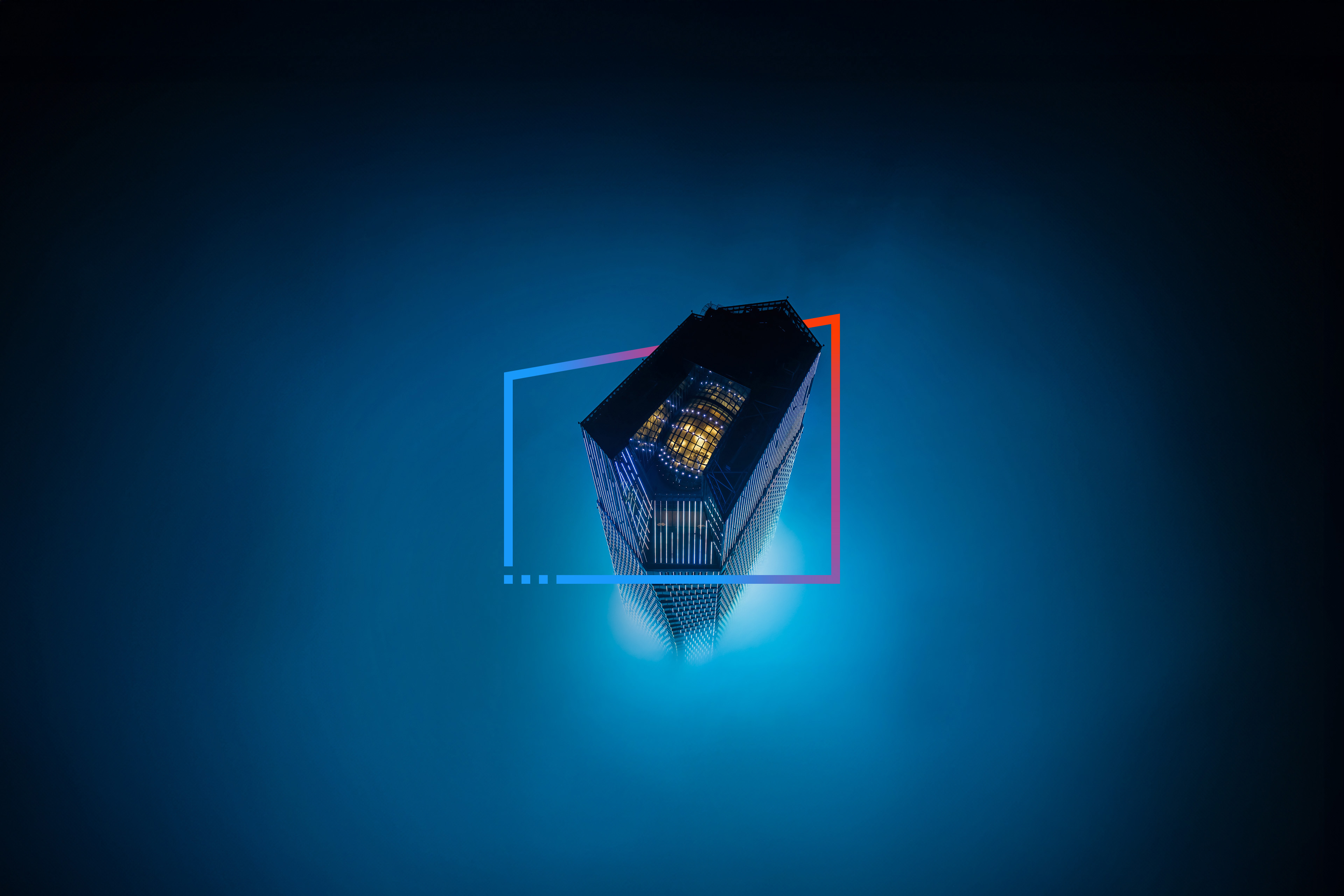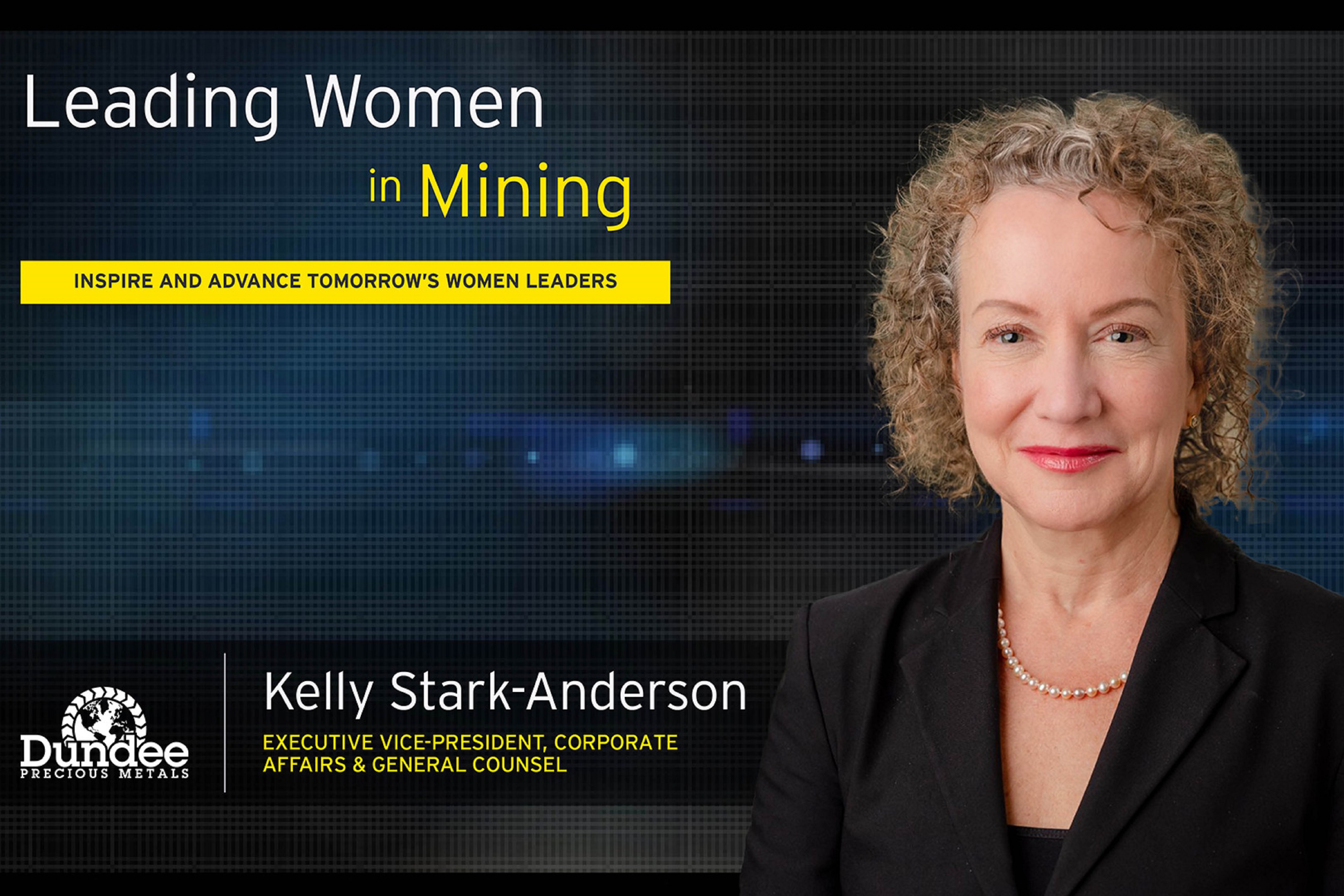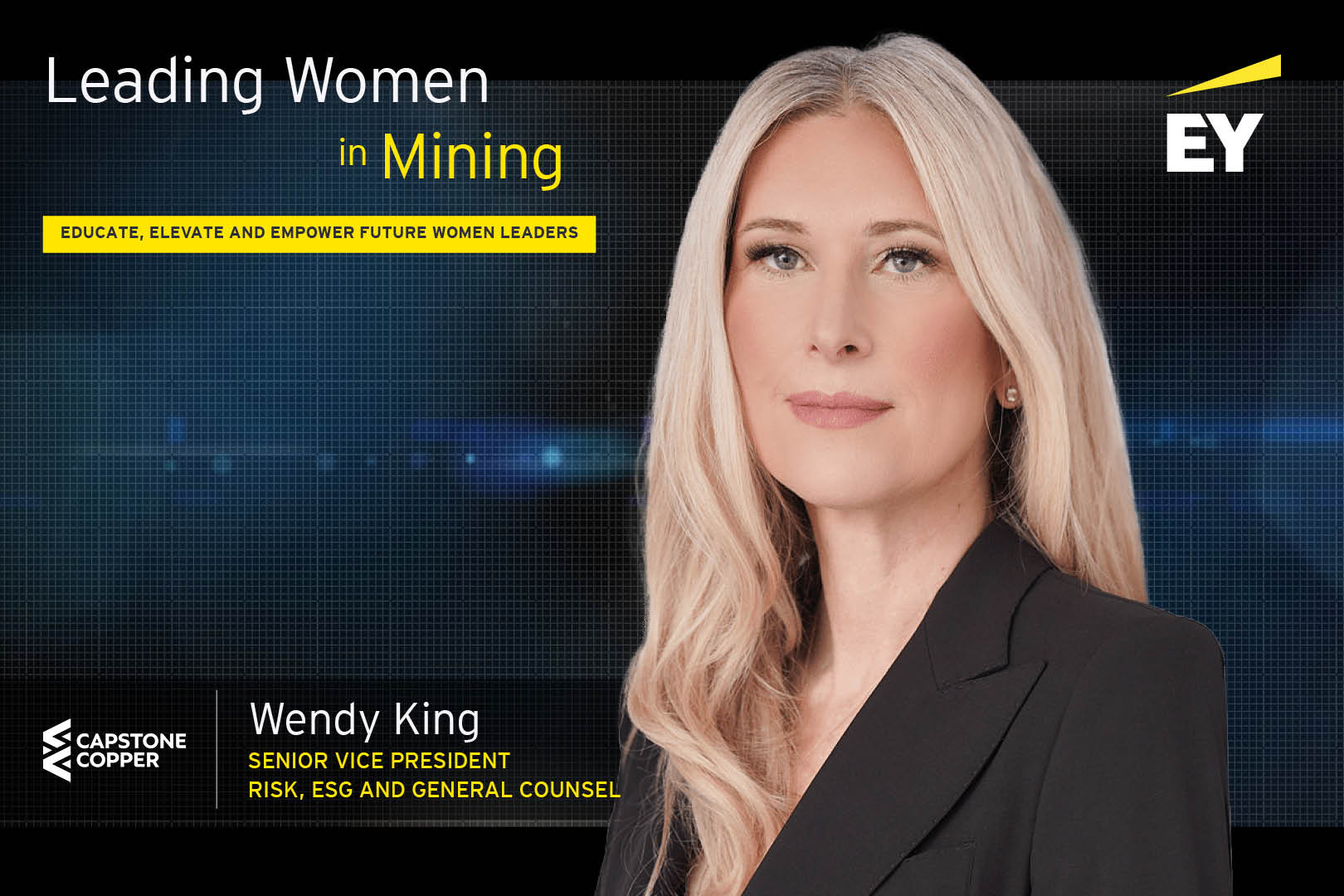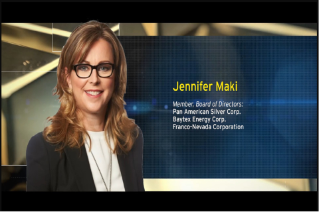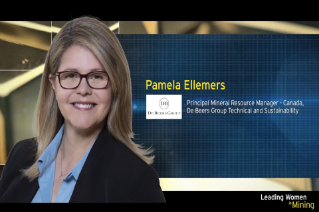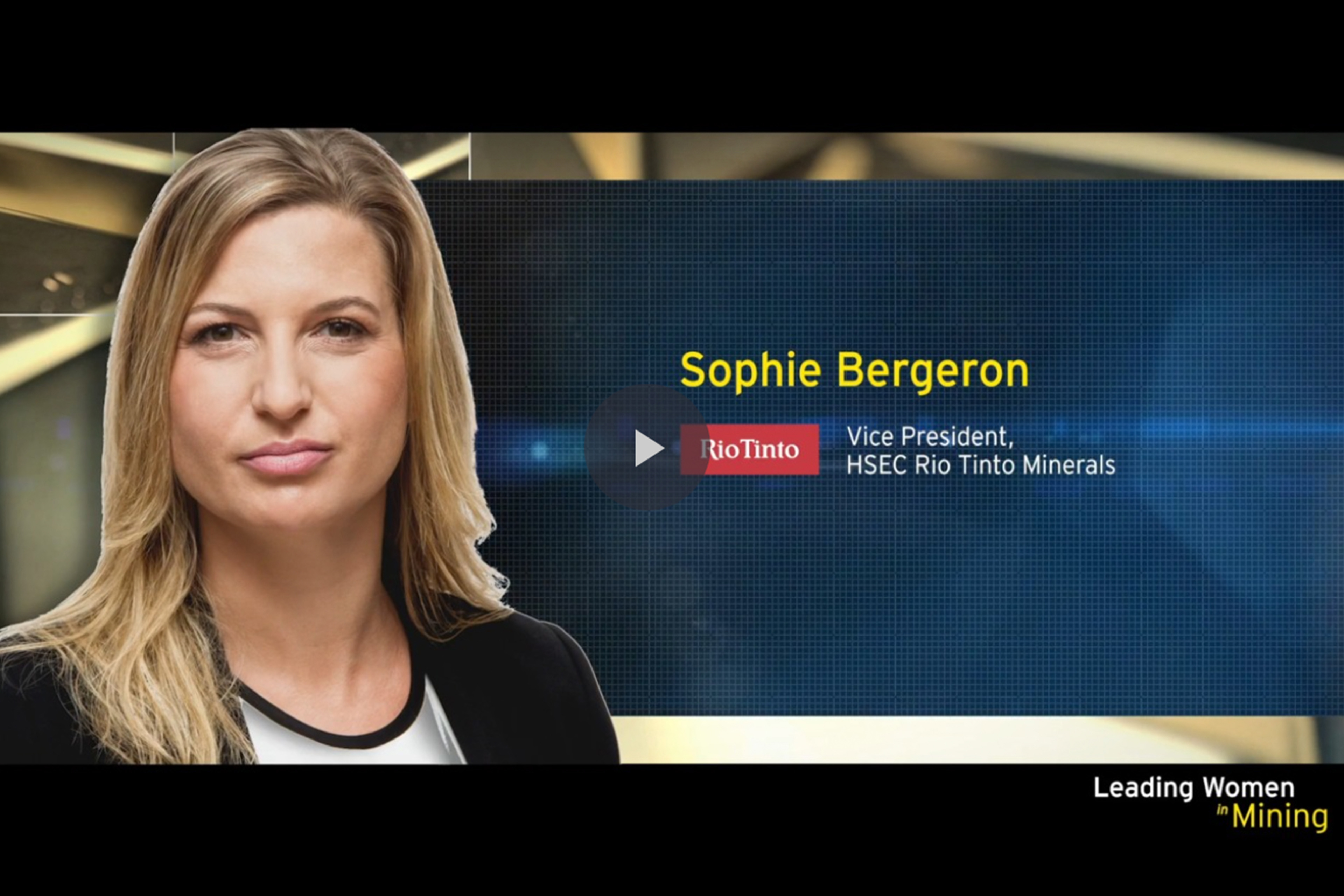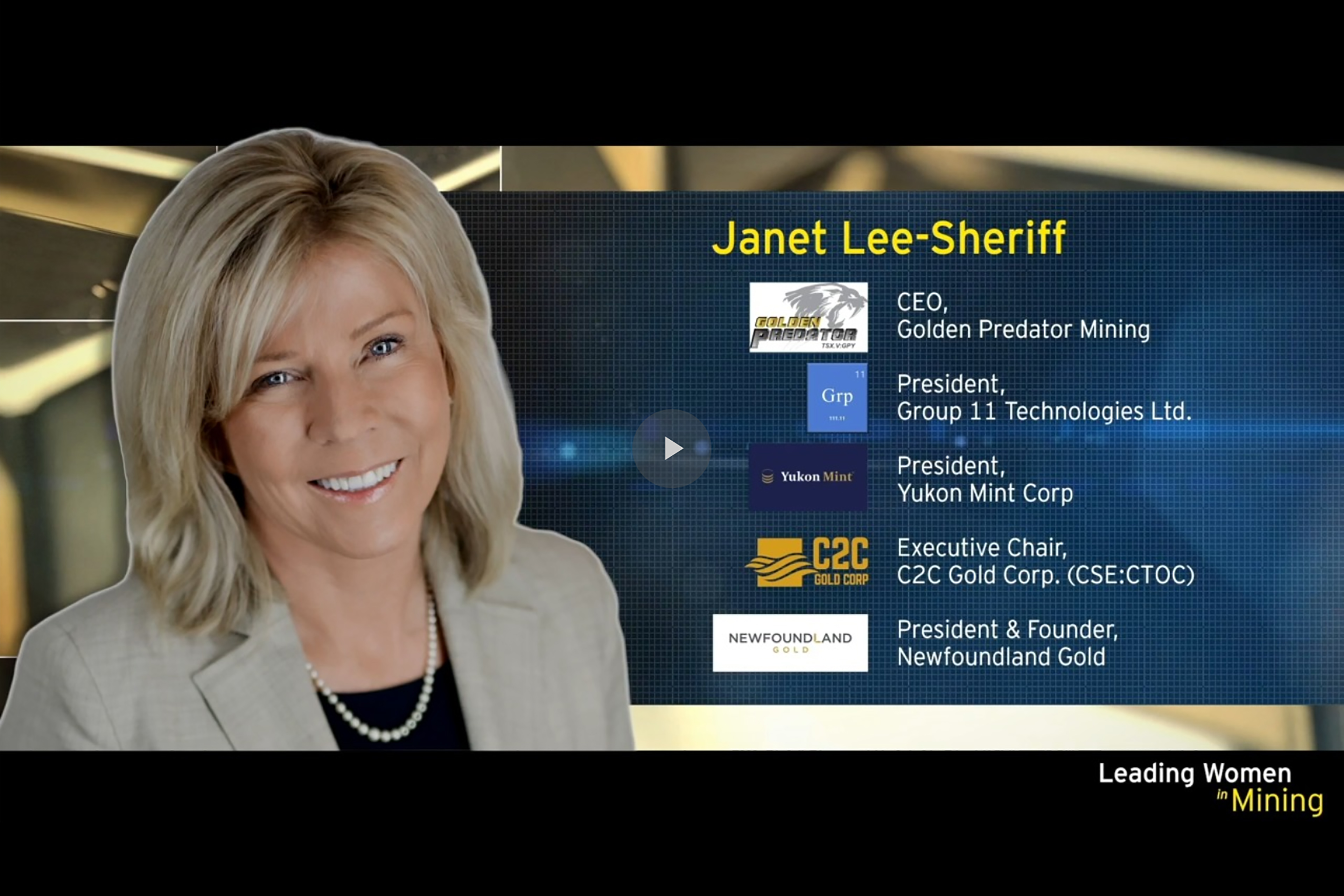EY refers to the global organization, and may refer to one or more, of the member firms of Ernst & Young Global Limited, each of which is a separate legal entity. Ernst & Young Global Limited, a UK company limited by guarantee, does not provide services to clients.
Watch Effie Simanikas, North American Mining Executive and Board Member and Top 100 Most Powerful Women in Canada Award recipient, discuss how perseverance in the face of challenges helped her carve a successful career in mining.
Leading Women in Mining is a video series showcasing female role models in the sector who, by sharing their career journeys and lessons learned, are aiming to inspire and advance tomorrow's women leaders in mining.
Effie Simanikas, North American Mining Executive and Board Member and Top 100 Most Powerful Women in Canada Award recipient.
Olga Makoyeva: Welcome to Leading Women in Mining. My name is Olga Makoyeva and I'm part of the EY Mining and Metals Center of Excellence. Effie, welcome! Thank you for taking the time to speak with us today.
Effie Simanikas: Olga, thank you so much for having me. I am so excited to be here. I have watched the series from the beginning. I love all the people you've had on it, and so I'm just very excited and very grateful to be part of this group.
Olga Makoyeva: So let's jump straight into it. You've had an impressive career, but how did it all happen? Tell us your story.
Effie Simanikas: Well, I don't know if this is going too far back, but essentially, I am the youngest daughter - I have one older sister - of parents who immigrated from Greece to Canada back in the late fifties, early sixties. They actually met in Canada. And I go that far back because it's shaped me a lot. So I'm a first generation born Canadian, born and raised in Toronto, spent almost all my life there till recently. And I grew up with parents that created a very loving environment. And just instilled a lot of confidence in me and my sister.
So that was the backdrop to what created me as a person. Then from there they were very much keen on education. So I didn't actually even realize education or university was a choice. I thought it was a natural progression.
They were very much you get educated, you get a career, and then from there you can get married, have kids, do whatever it is you want to do. So that shaped me quite a bit. I think I always loved the finance world. I liked accounting. I loved economics. Every aspect of it. So after university, I started off with KPMG.
And I spent four years there and it was great. But I would say I just knew I didn't want the partner track. And back then there weren't a lot of other tracks to be had. And I think what you're going to hear from me again and again is I try something, see how it goes. And then from there, it sorts of shapes where you go after that.
But it's a continuous view of what did I like about my last set of experiences, be it life, work or otherwise? What didn't I like? And so therefore that shapes the next step.
If I now look back on my career, I could never have planned this. I could never have planned four years in HR, years in operation, working in Australia, working in the UK, now living in the U.S. None of that was in the original plan. Absolutely none of it.
But again, you start with something and see how it goes. So that's kind of been the overall story.
Olga Makoyeva: Oh, that’s impressive, Effie. That takes a very courageous and fearless person to move countries, to move different companies and industries. What were the factors that said to you, okay, yes, that’s the right move.
Effie Simanikas: It’s a good question. I think when I join a company or when I take on something, whatever it is, personal or professional, the first question – and I think this is good advice as well careerwise, is can I add value to this, whatever this is? Is this something I think I can at least 50% of whatever it is they require, I can add value day one, I can contribute. And then the other criteria is, am I going to learn something from it? Or am I already at the full mental capabilities of this role? That’s sort of the, you know, the overall shape and criteria when I start to look at something.
And then you live it and you experience it and you go with the moment of it, and every success is a lesson learned and so is every failure. And from there, that shapes you. So I think that that’s the general view.
So, I would also say, saying yes as often as possible, saying yes to opportunities. When I was asked to be part of a general management program and meant spending a lot of time in the UK. It was absolutely, yes. Was I scared? Yes.
That's the other part of it. You're not going to get rid of fear. I would not even think of myself as fearless. I just need to know how to live with fear. So I think that you just keep going.
Olga Makoyeva: I love it. And I always say that it's always the most challenging situations or life events that you go through that shape you and make you stronger, resilient and fearless. So, what were the things that really shaped who you are today and kind of created some imperatives around how you progressed in your career and where you are today?
Effie Simanikas: I can’t put it down to exact events, but I would say the general theme of things that challenge me the most is when I am in that maybe it's either a learning stage or a growth stage or I'm uncertain and then it gets matched with others are uncertain, you know, about you, about oh my gosh, can she do it? Or are you going to be able to succeed? Or they just question you or you get into the politics and, you know, people wanting to take over your area or to do whatever else?
Those situations challenge me because I'm generally a relationship person. I prefer a scenario where both parties win and work together and collaborate versus compete.
So when I'm in situations where I either am in doubt or the partnership or relationships aren't working, that challenges me the most. That starts to feed on my confidence. Well, wait a minute. Are they right? Can I do it or you know, did I make that mistake or was that the right thing? And now when you start to question yourself and the fear gets bigger, your confidence goes down. I don't know that I have any great answer of how you push through that. Maybe the other, I guess piece of great advice that has helped me through my career is tenacity. You stay in the game, you just stay in it.
So when you have those doubts and when you're having those bad days, you figure out I just got to park it and show up and stay in that game and I don't have the answer right now. I'm not sure how to proceed and I'm not feeling great. And this isn't the best scenario for me, but I'm going back in. I am going at it. Coming back in the next day, fresh, bright eyed, bushy tailed.
Just saying I'm in it. And win or lose, doesn't matter. Don't give up because the staying in the game piece also will then build your confidence back. Keep pushing through, make mistakes – we learn from our mistakes - and you'll have some successes along the way, too.
Olga Makoyeva: So I'm sure you've worked with amazing people that probably inspired you, but are there maybe a couple of men or women that you've encountered throughout your career that you're really looking at as inspiring individuals that shaped some of the journeys that you took?
Effie Simanikas: Yeah. First of all, I'd actually say everyone I've ever worked for has shaped me in some shape, way or form. And what I mean by that is they've either inspired me to be as much like them as possible or they've inspired me to be nothing like them. But I will actually say some of my biggest learnings were from one particular individual that I just despised. But I learned more from this person than I think I ever learned in the sum of my career prior to this person.
So that in itself was a learning. Realizing, you know, sometimes that pivotal moment and that pivotal relationship taught me to give people a chance, not because you may end up liking them, not because you may end up wanting to be with them for a longer period of time, but because you can still learn from them.
And I learned so much from this person that it then taught me that every single relationship thereafter, whether I like the person or not, it didn't matter. From that point forward I looked at it as, I'm going to let that person be who they are and I'm going to see whatever they do, do they turn out successfully? If they did and it wasn't the way I would have approached it, that's a great learning. Did they fail? And if they did, how did they come back from that? So for me, I think that observation of people has helped me through, but also inspires me such that, you know, yes, definitely it's easy to remember the folks that are just so impressive. They continue to inspire me. I keep in touch with them. They're great mentors to me. But I also would say just as equally, I remember the few which I don't keep in touch with.
I may not have got along with but I've learned a lot from them. And I think that part's important.
And I’ve mentored quite a few women. And I think, one of the things that I try to say to them is relationships is your most important thing. You need folks in your life and in your career, you need relationships with your peers, relationships with your staff, relationships with your boss. Then you also need coaches. Then you need mentors which are different from coaches, and then you need champions in an organization as well. And so, you know, the question of are there people who inspire you? The answer should be all of those. My staff inspire me, my peers inspire me, my boss inspires me, and then I have a coach who's rooting for me. I've got a mentor who I'm inspired by and learning from and listening to.
And then I have champions in the organization, people who I inspire, people who believe in me and are willing to go to bat for me and to promote me internally in a company. So I think all of that is part of that inspiration package. And what's nice about having it as a package is when some relationships are not working so well or they're weaker at a point in time in your life, rely on the other ones, right? So if for whatever reason you don't get along well with your peers, ok, strengthen the relationship with your boss, strengthen the relationship with your staff and all those others while you work on the relationships with your peers.
Olga Makoyeva: I can totally relate because I would say that the things that really shaped who I am and some of my biggest learnings are definitely from some of the most difficult and complex relationships that I've encountered.
I want to take us now into maybe the mining industry and the mining space and talk about the challenges that women are facing in the mining industry. Even though I see more and more women navigating this complex industry, but what are some of the things that you are observing or have observed throughout your career?
Effie Simanikas: What a great question. I think in the mining space, as much as the numbers have gone up, they're not 50-50. And it's interesting when you look at numbers you don't always look at what level are women at? Are they more junior levels versus senior levels? I think it starts all the way at the top. You have to have as much as possible leadership team comprised of diversity.
And diversity of thought, diversity of gender, diversity in many aspects. Then as you go down, you want your next level everywhere from vice president, director, senior manager, you want those levels that have staff to really be as well diverse. I think the difficulty is a few things. One is how many women are attracted to the industry to begin with. The fact that naturally some women continued their careers, some women paused their careers, some women exit, you know, there's that particular challenge. There's been the challenge that some women at some point may not continue their careers for various reasons. And so the numbers themselves are a little bit lower. And then it's how do you provide opportunities to the ones that do stay in the game.
And I think that's the part where companies can, instead of using the excuse of, well, there's not as many people graduating from school of mines or places to pull from or there's not enough people staying in the game, you can also create space for the ones that are in the game.
And you can also create a more enticing package for those women in university and engineering programs to look at mining as a potential profession. I think it's a fantastic profession. I think it has so much to offer in terms of what roles you can play, whether you're at site, whether you are looking at the engineering, the long-term planning, the short-term planning, how AI is going to play a role in the whole sector going forward.
These are capital intensive industries. Can you raise capital? Can you speak with shareholders? If you're somebody who understands the technical and can bridge that gap to the non-technical investors? Huge opportunities.
So, I think there's a lot more companies can do to say how do we take high potential individuals - and whether they're women or men - and give them opportunities that might be stretch opportunities.
They may not be necessarily qualified to do that. But what if they're 25% qualified to do that. I talked about my criteria before. If I am at least 50% qualified, I am in. But I've done things where I'm 25% qualified to try it.
We could do things like where people demonstrate interest and demonstrate engagement and good ideas. How do we promote that and give them an opportunity to shine and lead and support them through it.
Give them tools, training. So, I think it's a great time for women to enter the industry. But at the same time, I do think companies, you know, follow their norms and it's good to expand that a little bit and create a little bit more innovation on how you expand or promote and build your labor force.
Olga Makoyeva: I was reading a study where it was showing that when there is a job posting, for example, and a woman is, let's say 75% qualified, she will not be tempted to apply for this position or talk to anyone because she thinks that while I'm not qualified for this, as in her male peer, for example, only 25% even qualified for the job would be applying. What advice would you give the women that are in this situation? Why do you think we have this fear or insecurity around us?
Effie Simanikas: That article you read it so spot on and it's a topic of conversation continuously. Again, I'm not going to speak on behalf of all women, but a lot of the common trends, we're very hard on ourselves.
We need it to be perfect. Or close to perfect. We need to be overqualified, you know. So a lot of it we do to ourselves, too. We want all the ducks to line up properly before we make that decision. It's a hard thing to say cause I definitely didn’t follow it when I was young. But I think if you can actually be okay with the 25% in terms of trying - I mean, don’t be okay with 25% output - but be ok if you know, 25% or 50% or part of it and you know how to learn, you will figure the rest out.
And especially if you've already got the attributes where you're hard working and you want it to be great, then that's okay. You will get there. I think there's a combination of women themselves trying to get out of that comfort zone of needing it to be perfect or needing to be extremely well qualified before trying something.
Now, again, go back to the show up. If you don't apply, you can't get the job. So, you know, it's like anything, you've got to show up. And again, I would also say with women, we’re highly analytical often. And so we analyze what if I did this job, what if this, what if that - that's not a decision you have to make today. The only decision you have to make is apply. Go for it. When they offer you the job, then you can decide do you want it or not?
Olga Makoyeva: Now I want to talk a little bit more about innovation in the mining industry, Effie. How do you think the industry can become more innovative amongst all of the energy transition that's happening? All of the ESG requirements at different organizations and investors are looking at. How do you become innovative in such a complex world?
Effie Simanikas: I think there's some forces at play here that are going to make us more innovative.
Most recently in the last couple of years, we've seen mining companies partner with the downstream, the OEMs. Where now all of a sudden you have manufacturing coming to mining and saying, well, we want a secure supply chain.
But they think we're a manufacturer and we're a miner and we think like mining companies and now they're challenging us on margins, they're challenging us on delivery dates, they are challenging us on meeting demand, an increasing demand curve, needing it domestically, having alternatives to other countries.
And I think the use of technology is a must. But doing it smart, using technology to say, well, for example. Could we do long-term planning or could we do short-term planning, or could we take real life feeds and use AI to make faster decisions or more effective decisions than necessarily having larger engineering teams? Could we use more automated equipment? Can we use it to augment?
So, from my perspective, I think there's no choice. I think companies in mining that don't embrace technology at some point, their minds are diminishing and, you know, they'll continue to enjoy the operating cash flow for as long as they can. But I think the ones that embrace technology and embrace that diversity and go forward with it, I think we'll do better.
Olga Makoyeva: If we want to link women to this innovation world in mining, how can women play the right role through this, through all these changes and significant shift that's happening in the industry?
Effie Simanikas: I think it starts in the colleges and universities. We are definitely marketing mining more in colleges and universities and I think we absolutely have to do that. And then they're marketing the AI and the technology piece and that's attracting people.
Look, when you're in college or university and you're looking for that first job, you go for things where you are going to learn, where you're going to grow. And often I'm going to say kids also want brand names. They want to work at a company that everybody wants to work at. So when you're a mining company trying to attract people, you are not generally a brand name.
So, you need to attract people in a different way. You need to either give them something else, either because you're partnering with the downstream and they understand an EV vehicles so now they understand how they're contributing to something they're going to drive. Or want to buy, or the friends drive and want to buy. Or alternatively the AI piece. And if it's not AI, it’s just any technology.
And so I would definitely say at the college and university level, getting folks attracted into engineering or into programs, finance and others, and then marketing the industry and marketing how the industry is changing, how the industry is partnering with downstream and how the industry is embracing technology will attract those people into it. And I think that's how you get women into those fields.
And I think the other side of it is understanding mining. There is nothing that doesn't come from a mine. So we just have to embrace that. Mining's been too dirty a word. And sometimes mining companies have earned that dirty word or dirty aspect of it in the history of mining. But now mining sustainably, mining environmentally, doing those things should be able to attract more people and we should be able to understand how we can live on this planet and share this planet and use the resources of this planet in a way that's sustainable.
Olga Makoyeva: And that kind of leads me to my last question. What does the future look like for women that are entering the mining industry? What do you think ten, 20 years from now is going to look like? What's going to be different where women are actually going to be more predominant in the industry? How do you see it?
Effie Simanikas: I am going to tell you how I hope to see it. I hope to see more women in the industry. I think women generally are great at relationships, as are men. But I think that women add something different to the way they collaborate. And so, I think I'd love to see more women collaborating with their male colleagues, diversity of women, diversity of men in the industry.
This is my hope for it. My hope is that you've got a diverse labor force that comes together, works together to say how do you maximize a resource, how do you extract it efficiently, how do you extract it in the most environmentally way possible, and how do you treat it, process it and create a product out of it that is useful for society and as least harmful a footprint as possible.
Do I think women have the thought process and the innovation and the ability to contribute to that conversation? Absolutely. So, I really do hope women look at this industry and say, I can help change that and not transform it entirely. It doesn't have to be transformed entirely, but it can evolve.
And that evolution, I think women can play such a key role in. And I really do hope that's the future of mining, where we understand we do need to mine, we do need to extract resources, but we can do it better.
Olga Makoyeva: Well, I don't know Effie, I think you definitely sold it to me again, and I'm like, I made the right move. So, I think whoever is watching this is definitely going to be inspired to at least be more curious about the mining industry if they aren't already so.
Effie Simanikas: Well, all they need to do is apply. Just start, all you need to do.
Olga Makoyeva: Wow, Effie, this has been so inspiring. So many things that you talked about resonated with my personal career experiences, and I'm sure it will resonate with our viewers as well. Again, I want to thank you very much for joining us today.
Effie Simanikas: Thank you very much, Olga. I enjoyed it as well.
Olga Makoyeva: See you soon, Effie.
Effie Simanikas: All right, see you.
Leading Women in Mining Interviews
Leading Women in Mining Episode 6 – Kelly Stark-Anderson
Watch Kelly Stark-Anderson, Executive Vice-President, Corporate Affairs & General Counsel, Dundee Precious Metals Inc discuss key success factors from sport that helped her carve out a successful career to opportunities that will create pathways for women in mining.
Leading Women in Mining Episode 5 – Wendy King
Watch the interview with Wendy King, Senior Vice President – Risk, ESG and General Counsel, Capstone Copper.
Leading Women in Mining Episode 4 – Jennifer Maki
Watch Jennifer Maki, Member Board of Directors at Pan American Silver Corp., Baytex Energy Corp., and Franco-Nevada Corporation discuss the opportunities and lessons learned throughout her career.
Leading Women in Mining Episode 3 – Pamela Ellemers
Watch the interview with the inspirational Pamela Ellemers, principal Mineral Resource Manager – Canada, De Beers Group Technical and Sustainability.
Leading Women in Mining Episode 2 – Sophie Bergeron
Watch our first interview with Sophie Bergeron, Vice President, HSEC Rio Tinto Minerals, and hear her inspiring story as a leader in the mining industry.
Leading Women in Mining Episode 1 – Janet Lee-Sheriff
Watch our first interview with Janet Lee-Sheriff, Executive Chair, C2C Gold Corp. and hear her inspiring story in the mining industry.


